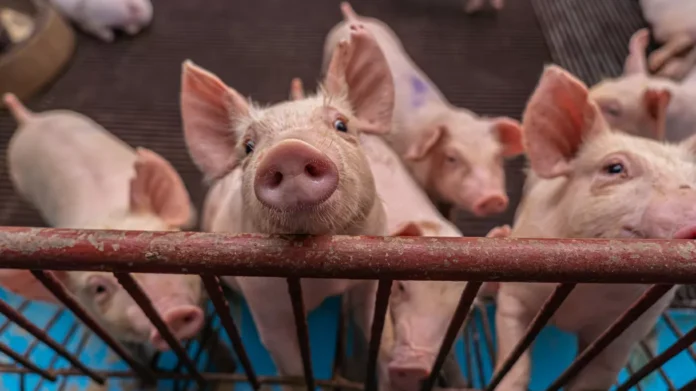U.S. counties with hog and cattle feeding operations may be subject to higher air pollution levels and lack the necessary health insurance to treat related medical problems, according to a recent study published on Tuesday.
The study, conducted by researchers at the University of California San Francisco, found that concentrations of an airborne contaminant linked to heart and respiratory issues were significantly higher in counties with large-scale livestock feeding operations compared to those without them.
With the demand for meat and dairy products on the rise, the number of concentrated animal feeding operations (CAFOs) in the United States has also increased significantly over the years. These operations house thousands of animals in small, confined spaces, leading to high levels of manure and other waste. As a result, the surrounding air and water sources become heavily polluted, posing a threat to both human health and the environment.
The study focused on counties in the Midwest and South, which are home to a large number of CAFOs. Researchers analyzed data from over 4,000 counties and found that counties with hog and cattle feeding operations had higher levels of hydrogen sulfide, a toxic gas that can cause respiratory problems, heart disease, and even death in high concentrations.
Furthermore, the study also revealed that residents of these counties were less likely to have health insurance, making it difficult for them to seek medical treatment for health issues related to air pollution. This is a concerning finding as the people living near CAFOs are more susceptible to respiratory problems, including asthma, bronchitis, and lung infections.
The lack of access to health insurance in these areas can have serious consequences, especially for low-income families who may struggle to cover the costs of medical treatment. This further highlights the environmental injustice faced by these communities, where they are forced to bear the burden of air pollution while lacking the resources to address its harmful effects.
The findings of this study are particularly alarming as they shed light on the negative impact of CAFOs on both human health and the environment. It is essential for policymakers to take immediate action to address this issue and ensure the well-being of these communities.
One possible solution is to implement stricter regulations on CAFOs to limit their emissions and ensure proper waste management. This would not only reduce air pollution levels but also protect the water sources from contamination. Additionally, it is crucial for the government to provide health insurance coverage for these communities to ensure they have access to necessary medical care.
On a positive note, some states have already taken steps to address this issue. In 2019, Iowa passed a law requiring CAFOs to maintain a minimum distance of 1,500 feet from residential areas to reduce the impact of air pollution on nearby communities. Other states should follow suit and take measures to protect the health of their citizens.
Moreover, consumers also have a role to play in reducing the demand for meat and dairy products from CAFOs. By choosing to purchase from local and sustainable farms, consumers can support ethical and environmentally friendly practices in the meat and dairy industry.
In conclusion, the study serves as a wake-up call for the harmful effects of CAFOs on air quality and the health of nearby communities. It is essential for policymakers to take immediate action to regulate these operations and protect the well-being of their citizens. It is also crucial for consumers to make conscious choices in their food purchases to support sustainable and ethical practices in the meat and dairy industry. Together, we can create a healthier and cleaner environment for all.

